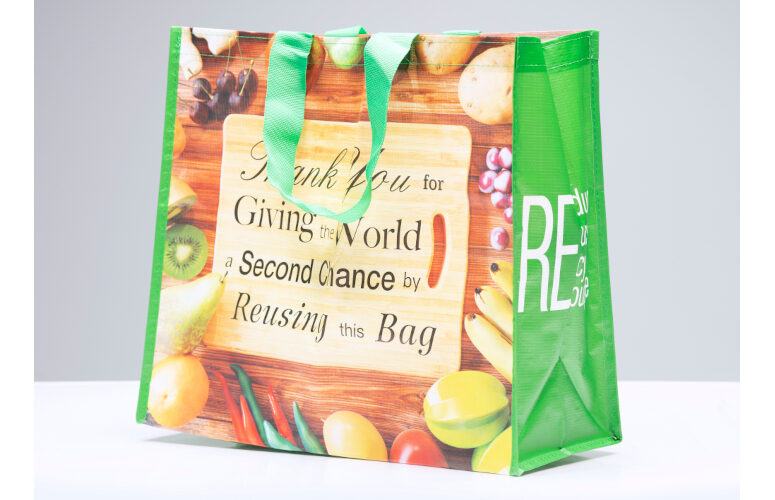
Plastic Bag Ban Takes Effect Today
By Lisa Goulian Twiste, Contributing Writer On May 4, 2022Attention New Jersey shoppers: You will no longer be given plastic carryout bags to bring home groceries and other goods. A law signed by Gov. Phil Murphy in November of 2020 takes effect today, prohibiting grocery stores, retailers and food service companies from providing or selling single-use plastic bags at the register. Instead, consumers will have the option of bringing their own bags or buying reusable ones.
New Jersey is the ninth state to ban plastic bags and is imposing the strictest laws to date. These include an additional ban on paper bags at grocery stores equal to or larger than 2,500 square feet (the average grocery store is over 30,000 square feet) as well as a ban on Styrofoam products — including cups, plates and to-go containers — from restaurants and other food service businesses. As part of the legislation, plastic straws have been banned since Nov. 4, 2021, unless specifically requested by the customer.
In addition, unlike in other states that have adopted a ban, New Jersey stores will not have the option of charging a nominal fee for a single-use plastic bag at the register.
Murphy, whose administration gave businesses 18 months to figure out alternative carryout options, says this law addresses “the problem of plastic pollution head-on with solutions that will help mitigate climate change and strengthen our environment for future generations.” According to the NJ Clean Communities Council (NJCCC), more than 130 New Jersey towns already have municipal bag ordinances in place.
In addition to grocery stores, the plastic bag ban will also apply to restaurants, convenience stores, food trucks, movie theatres, liquor stores, retail stores and other establishments. Plastic bags exempt from the ban include woven plastic tote bags with stitched handles that are often sold at checkout for $1 to $2; plastic produce bags that hold fruit, vegetables, coffee beans, loose candy and similar products; bags used to wrap meat or fish; deli bags that contain prepared food; bags used to hold prescription drugs; and newspaper bags. Shoppers will also still be able to buy plastic garbage bags, pet waste bags and Ziploc-style bags.
Wakefern, which owns and operates 185 ShopRite stores across New Jersey, is a proponent of the ban and has been helping customers prepare for the new statewide law with in-store signage and reminders to “plan for the ban” and bring reusable bags to shop.
“ShopRite believes the best bag is a reusable bag, and we continue to work to make sure our stores are prepared when the law takes effect May 4,” Wakefern Communications Specialist Karen O’Shea said. “While our goal is to encourage customers to ‘be the change’ and bring their reusable bags to shop, we will also have a variety of reusable totes and options for shoppers who forget to bring their own bags after the state law takes effect.”
Despite such publicity, a Monmouth University poll published in April found about a third of New Jersey residents hadn’t heard about the ban. Overall, a majority of those surveyed support the ban on plastic bags (61%) and foam food containers (64%), while they were more evenly divided on the ban on plastic straws (52%) and supermarket paper bags (47%).
Joann Gemenden, executive director of the NJCCC, says New Jersey households use 4.4 billion plastic bags a year, and since 1986, 14.1 million straws and coffee stirrers have been picked up during New Jersey’s annual participation in the International Coastal Cleanup. She also points out that with so many municipal bag ordinances in place, many New Jersey residents have already transitioned to reusables.
“They say it takes 28 days to form a new habit, so make sure you write, ‘Bring reusable bags’ on your grocery list and keep a supply of reusable bags in your car,” she adds.
Gemenden admits, however, that not everyone is in favor of the ban, saying, “The response from citizens and shoppers has been mixed. Some are enthusiastic about New Jersey getting rid of plastic bags altogether. Many are mourning the loss of their supply of free pet waste bags.”
There are other concerns about reusable bags, says Tony Myers, vice president and general manager of grocery and retail at Inteplast Group, a Livingston-based company that designs and manufactures plastic products (including single-use bags). As a result of environmental issues related to harsh chemicals used in production of reusable bags, most of the bags approved in New Jersey have to be imported from overseas, specifically cloth-style bags, he says.
“This presents a concern, as these bags can pick up and carry blood stains from meats, liquid stains from bottles, sweat and other types of potential dangers,” Myers says. “These porous bags can take months to arrive at ports, cost a lot more money, and some US consumers may not be used to carrying bags around.”
Inteplast, which for at least a decade has offered alternative and reusable grocery and retail bag options, increased its plastic bag production significantly during the COVID-19 pandemic because, Myers says, plastic bags cannot carry viruses or germs as easily as non-plastic packaging. “The cloth bags are a real issue with buildup of various germs and generally are not washed and cleaned on a regular basis. They are not recycled either,” he adds. “We remain very open to alternatives, but like gas and oil, there is no ‘one size fits all.’”
Other states that have plastic bag bans in effect are California, Connecticut, Delaware, Hawaii, Maine, New York, Oregon and Vermont.
To access more business news, visit NJB News Now.
Related Articles:





